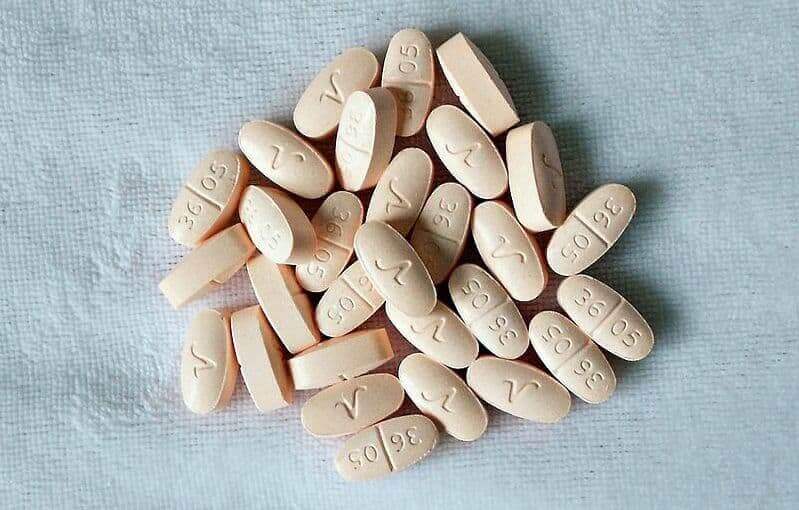
Snorting Hydrocodone – Hydrocodone (i.e., Vicodin, Norco) is a prescription opioid indicated to treat moderate pain. It is classified as an analgesic (pain reliever) but also acts as a central nervous system (CNS) depressant.
As prescribed, hydrocodone is usually found in tablet form and taken orally. For recreational or non-medical purposes, however, it is also frequently crushed into powder and administered intranasally by snorting the resulting product.
When hydrocodone is administered by snorting, the drug is rapidly absorbed into the mucous membrane, a significantly quicker route than using hydrocodone orally. When the drug reaches the brain, the result is an unusually intense flood of dopamine that produces the desired psychoactive effects – and thereby providing the catalyst for the drug’s addictive potential.
Snorting Hydrocodone: Tolerance, Dependency, and Addiction
When hydrocodone is abused for an extended period, tolerance and dependence can develop. Tolerance occurs when the person using the drug needs to administer a continually increasing amount to achieve the experience – moreover, the high – they are seeking.
Signs and symptoms of hydrocodone addiction include, but are not limited to the following:
- Continued abuse of hydrocodone despite unwanted physical and psychological effects.
- Lack of interest or enjoyment in activities and interests once regarded as important.
- The use of hydrocodone in hazardous or improper situations.
- Negative changes or issues in other areas of life such as work, school, relationships, and financial status.
- General malaise, lethargy, or sedation.
Drug dependency occurs when the user’s central nervous system is no longer able to function correctly, and any efforts to quit or reduce drug use result in very uncomfortable mental and physical side effects. This is also known as withdrawal syndrome, a condition that can persist for hours to days depending on the severity of the addiction, typical dose, and duration of use.
Symptoms of hydrocodone withdrawal may include, but are not limited to the following:
- Severe headache
- Dry mouth
- Stomach aches and pains
- Constipation
- Nausea and vomiting
- Stuffy nose
- Shaking and tremors
- Impaired motor coordination
- Slurred speech
- Irritability and mood swings
- Chest tightness
- Respiratory infections
- Seizures
- Confusion
- Paranoia
- Respiratory depression
- Coma
- Death
Because snorting hydrocodone delivers the drug to the brain more rapidly than using tablets, the risk of tolerance, dependence, and life-threatening overdose increases. Finally, in addition to the above conditions, snorting hydrocodone can cause infection and severe damage to the nasal passage, septum, and surrounding tissues.
Snorting Hydrocodone and Overdose
Snorting hydrocodone, especially in conjunction with other drugs or alcohol can result in life-threatening central nervous depression, overdose, and death.
Symptoms of a hydrocodone overdose include:
- Vomiting
- Lightheadedness
- Dizziness
- Restricted pupils
- Low blood pressure
- Pale or blue lips and nails
- Limp body
- Cold, clammy skin
- Unresponsiveness
- Unconsciousness
- Seizures
- Extremely slow heart rate
- Slow, labored respiration
- Respiratory arrest
- Gurgling sounds
Getting Help – From Detox to Addiction Treatment and Beyond
Despite the fact that hydrocodone abuse can result in many unpleasant and sometimes dangerous effects, many people who abuse prescription painkillers tend to downplay the severity of their condition. Moreover, some patients erroneously believe that if the drug is prescribed, it can’t be that dangerous.
Although hydrocodone misuse can lead to a variety of adverse effects, many who abuse prescription drugs such as hydrocodone minimize the seriousness of their disease. Rejecting help can be life-threatening and seeking treatment in any phase of addiction is fundamental to long-term recovery.
Detox
Clinical treatment for hydrocodone abuse starts with our detox program, a process in which the patient is medically-monitored by health professionals 24/7, and symptoms of withdrawal are treated through the use of medication-assisted therapy (MAT). MAT works to reduce drug cravings and withdrawal symptoms by using prescription medications designed to treat opioid use disorders, such as methadone and buprenorphine. After discharge, patients are encouraged to seek treatment in one of our evidence-based treatment programs, which include inpatient (residential stay) and intensive outpatient therapy (IOP) formats.
Treatment for Hydrocodone Addiction
Persons who seek security and structure often opt to stay in our residential treatment center around-the-clock for a recommended minimum of 30 days. Individuals who require more flexibility to attend to school, work or family responsibilities also have the option of IOP. IOP patients engage in treatment on a set schedule several times per week but are allowed more freedom and live independently outside the center.
Why Seek Our Help?
Hydrocodone addiction is a life-threatening condition that is best treated using long-term therapy, counseling, and support. Researchers have not found a cure for hydrocodone addiction, but it can be successfully treated. Those who accept help are given the opportunity to regain control of their lives and can look forward to long-term sobriety and wellness.
Our center offers patients a safe, structured environment and professional staff trained to recognize and treat the individual needs of each patient using an in-depth, custom approach to addiction treatment and recovery.
Related: Snorting Adderall